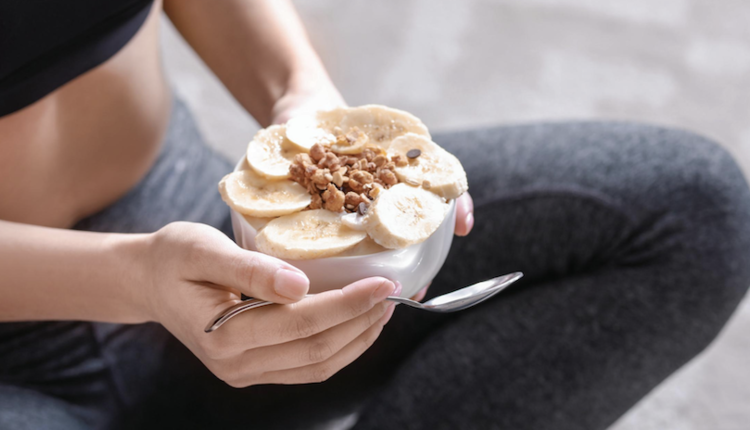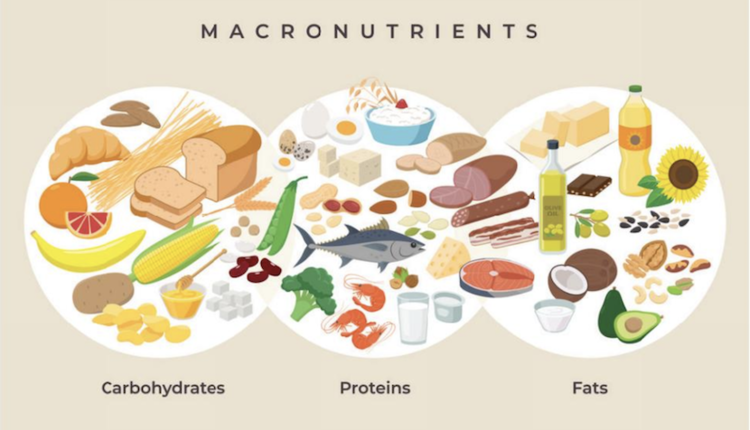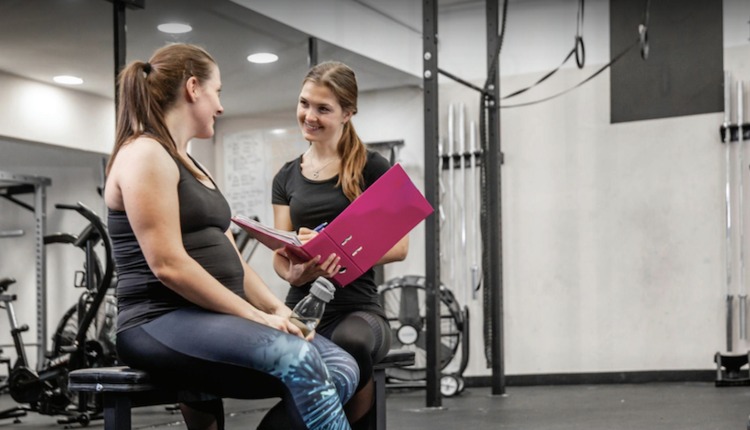
Energy is required for everything we do! Energy means, “the strength and vitality required for sustained physical or mental activity.” No matter what the activity, our body uses nutrients to produce energy that is used during exercise. Nutrient timing includes the manipulation of food intake around exercise sessions to improve performance, recovery, and adaptation.
Nutrient Timing Benefits: Three science backed benefits of nutrient timing around and during the workout are:
- Improved Performance: Endurance training and power sports rely heavily on the glycolytic energy system. This means that the body prefers to use carbohydrates for energy. Eating carbs leads to greater power output and endurance.
- Stress Hormone Reduction: During a vigorous workout, the body produces catabolic hormones like cortisol. Catabolic hormones break down muscle tissue. Eating carbohydrates after a workout increases insulin and balances the cortisol levels which reduces the muscle damage.
- Lower Inflammation: Physical stress from intense or long workouts can result in free radicals and inflammation. But a post-workout meal high in protein and carbs can significantly reduce immune system suppression, thereby improving overall health.
Hitting the nutrient intake goals before, during and after the workouts is as important as planning the exercise sessions for your clients. It can provide your clients with the performance edge they are looking for. Let’s explore how nutrient consumption around the exercise session can be used to elevate your client’s performance.
Pre-Workout Nutrition: Eating a small snack rich in carbohydrates before the workout can provide sustained energy for the workout. The main objective of a pre-workout snack is to replenish glycogen, the short-term storage form of carbohydrate. This immediately supplies the energy needed for exercise. It is crucial for morning workouts, when the liver glycogen is depleted from fueling the nervous system during sleep.
To get the most out of the workouts, your clients need to eat a 150- to 200-calorie carb rich snack 30 to 60 minutes before the training session. Eating foods that are high in simple sugars will provide an immediate source of fuel during the training. Including some protein can be helpful, but it’s better to keep it to a very small quantity. Protein takes longer to digest than carbohydrates and doesn't provide immediate energy for physical activity. It’s best to avoid fat and fiber rich foods before workouts as they can upset the digestive tract. Some examples of pre-workout snack are: a banana, whole wheat toast with peanut butter, ½ cup low fat yogurt with berries and an orange.
Intra-Workout Nutrition: Carbohydrate consumption during training provides energy and prevents fatigue. To meet the body’s need for fuel, aim for 30 grams of carbohydrate per hour for training sessions that last between 1 hour to 3 hours.
Intra-workout supplementation is dependent on the length of training session. It is not necessary to have supplemental nutrition during short or less-intense activity bouts. Athletes will need to fuel during the workout if it lasts more than an hour or the environmental conditions require glycogen to be restored to maintain intensity. During endurance exercise sessions, carbohydrates should be prioritized over other fuel sources. Some examples of simple carbs that can be consumed during workouts are - energy gels and sports drinks like Gatorade. These supplements are easily absorbable in the body and provide immediate energy.
Although intra-exercise nutrient timing is commonly associated with endurance sports, it is also important for power sports and weight training. Protein ingestion during a workout enhances muscle gain; however, replenishing carbohydrates during weight training doesn't appear to enhance performance.
Post-Workout Nutrition: You might be done training your client, but you're not finished executing their recovery plan. It’s time for your client to refuel their tank after the workout for better recovery and rebuilding damaged muscles.
Our bodies are primed for nutrient absorption 15 to 60 minutes after exercise. This is the golden window of opportunity to refuel your body, scientifically known as “the anabolic window.” Intake of carbohydrates and protein becomes crucial during this time. A protein/carbohydrate shake can be an easy way to get nutrition without much prep. The most common carbohydrate to protein ratio is 3:1, with 3 grams carbs for every gram of protein. It’s recommended to consume 30 to 45 grams of protein after workouts. Chocolate milk is a great example of this ratio, but any other smoothie made at home is equally beneficial.
Bottom Line: Fueling your body at the right times can help you perform better. Eating the right foods and drinking enough fluids before, during, and after high-intensity activity or endurance training session will keep you going strong.
Aesha Tahir is an exercise scientist and has many years of experience in the fitness industry as a personal trainer, professional educator and entrepreneur. She is the founder and operator of ToneAndStrengthen.com. She has helped many clients reach their fitness goals and attain better posture. Follow her on IG @tone_and_strengthen.




















